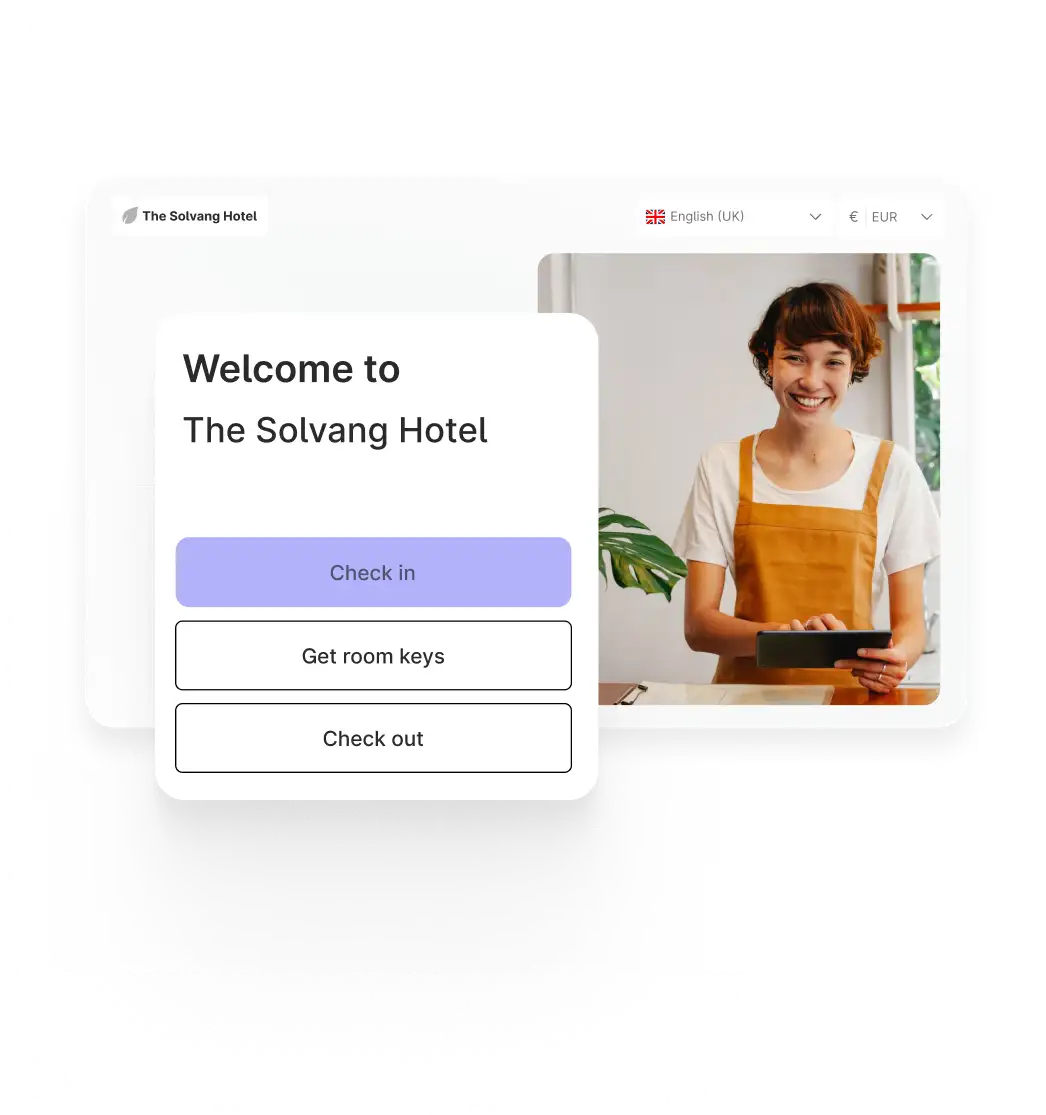Hotel POS System
Fully integrated, purpose-built POS
Streamline your food and beverage operations with Mews POS, a mobile, all-in-one platform designed for hotel restaurants.
Fully integrated, purpose-built POS
Streamline your food and beverage operations with Mews POS, a mobile, all-in-one platform designed for hotel restaurants.

A complete cloud hospitality platform

Mews POS is a mobile-optimized platform that adapts to the changing guest expectations and the complexity of food and beverage operations.

No need to download an app, search for staff, hunt down physical menus or search through a lengthy list of items. Put guests in control and make ordering as easy as snapping a QR code – giving staff time to focus on guest service.



With Mews Payments, everything you need for processing payments – for your restaurant and your accommodation – sits within one platform. Serve up a fast, seamless and secure payment experience at every touch point for guests.

From granular details to the big picture, up-to-the-second data and customizable dashboards allow you to track valuable performance metrics for the health of your Food and Beverage operations. Tag items and analyse menu data, view performance of a single location or a multi-chain group, and make better, more informed decisions.



The all-in-one solution for back-of-house connects inventory and ePOS so you can track, analyze, plan and order with confidence as you maximize efficiency and profitability. Upload recipes for ingredient-level updates.

The independent UK hotel uses Mews ePOS to connect their F&B to the Mews ecosystem and ensure that guests have a seamless experience across their whole stay.
Cloud-native
Global
Works with credit cards, debit cards, regional alternative payments and more.
Integrated
Connects directly to Mews POS and Payments for frictionless experiences and shared guest information such as allergens.
Efficient
Guest-centric
Automated

Get started in three easy steps
Schedule a 30-minute call with a Mews expert.
Get a personalized demo and see what Mews can do for you.
Expert onboarding to get you earning revenue in no time.
FAQs
POS stands for point-of-sale. A hotel POS handles the ordering and payments of the food and beverage operations as well as the sale of other retail goods or services. A point-of-sale system may include hardware and software and, in addition to payments, may also manage inventory, provide data and reporting and help facilitate communication between teams. Today’s cloud-based point-of-sale systems, like Mews POS, make it easy for guests to pay using a credit card (at a mobile terminal) or using a mobile wallet like Apple Pay.
From room service to coffee in the lobby or a cocktail by the pool, food and beverage services are a great way for hoteliers to bring in more revenue. And when your hotel POS is connected to your PMS, everything runs smoother. It offers more opportunities to customize offers or upsells based on guest data and lets you sell from anywhere across your property.
Because it’s designed for hotels, Mews POS keeps up with the complexities of the hospitality industry. Orders go straight from table to kitchen, bills are split in seconds, and payments are instant. Your guests can even charge to their rooms.
In the hospitality industry, PMS stands for property management system. PMS software is used to manage the core operations of a hotel. This includes guest reservations, inventory, check-in and check-out, housekeeping, channel management, billing and more.
POS stands for point-of-sale and, in a hotel, is used to take payments for purchases such as retail and food and beverages. It also manages inventory and provides a variety of reports to help optimize revenue.
When a POS is fully integrated with a hotel’s PMS, the experience for staff and guests becomes frictionless and more efficient, creating a seamless and more enjoyable guest experience.
The beauty of Mews POS is that no proprietary hardware is needed – only an internet-enabled Android smartphone or tablet. Here are the ones we recommend:
Digital ordering — Guests can conveniently order and pay for their food and drinks from anywhere in the hotel via a QR code.
Connected inventory — Back-of-house connects inventory to the POS so staff can efficiently track, analyze, plan and order ingredients, maximizing profits. It even tracks menu items down to the ingredient.
Real-time reporting — Up-to-the-second data offers performance metrics and other insights to ensure your F&B operations are functioning at their peak potential.
We’d love to chat
But first, you'll need to update your cookie preferences. Our live chat relies on them to function properly.
Cookie management
Here you can manage your preferences regarding cookies:
Essential cookies
Essential cookies enable core functionalities of the website such as marking your data inputs, network management and accessibility.
Functionality cookies
These cookies allow a website to remember choices you have made in the past, like what language and currency you prefer, remember your name and email and automatically fill forms.
Analytical cookies
Analytical cookies help us improve our website by collecting and reporting information on how you use it.
Advertising cookies
Advertising cookies for delivering tailored and customized advertising.

See what all the fuss is about. We'll walk you through Mews Hospitality Cloud and answer any questions you have - it's that simple.